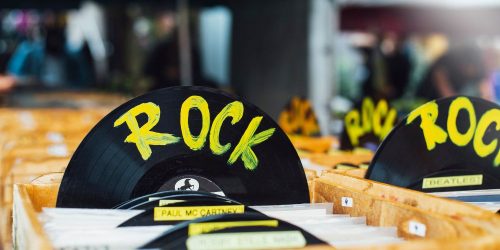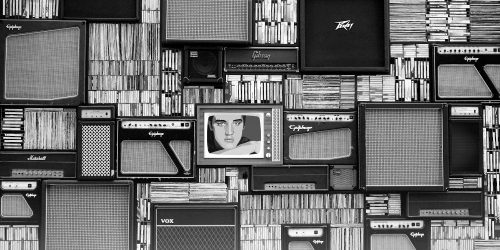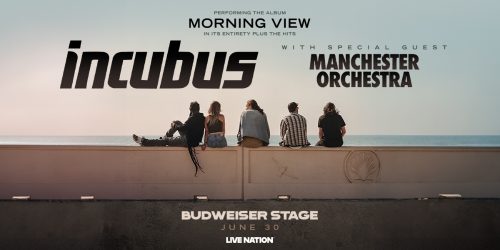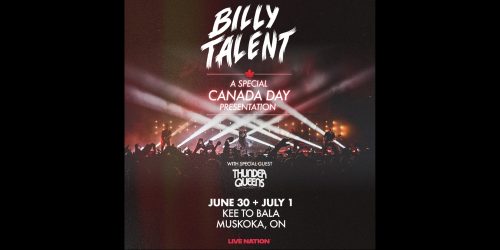July 26: Napster Ordered To Cease Music Sharing
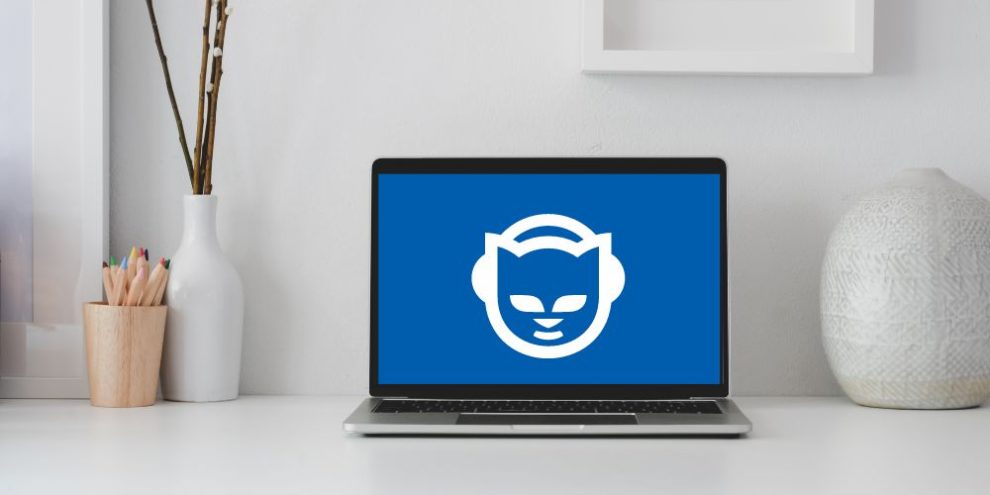
On this day in 2000, Napster was ordered to stop file sharing for most of the music on their platform by midnight on July 28.
Napster was an innovative and controversial service that surfaced in 1999. Its time was short-lived but its impact was huge, forever changing the music industry as it moved into the digital era.
Founded by Shawn Fanning and Sean Parker, Napster introduced a revolutionary peer-to-peer (P2P) file-sharing platform that allowed millions of users to share and download music freely.
Napster's P2P file-sharing model was groundbreaking at the time. Unlike traditional centralized servers, where users download files from a central source, Napster connected users directly with one another. This allowed for faster and more efficient downloads, making it easy for users to access a vast library of songs as encoded MP3 files.
Napster Blew Up
With its user-friendly interface, it was the perfect place to find difficult-to-obtain music. This included older and unreleased songs, as well as bootlegged concert recordings.
The platform’s popularity soared quickly, attracting millions of users worldwide who embraced the convenience and accessibility of this new platform. But the recording industry and musicians began to raise concerns about copyright infringement and the potential loss of revenue due to music piracy.
Napster Gets Sued
The Recording Industry Association of America (RIAA) was the first to sue in December of 1999. They claimed that Napster facilitated widespread copyright violations.
Metallica followed in early 2000, filing a suit for copyright infringement and racketeering. The suit came after they found out that a demo of “I Disappear” was being played on local radio stations before it was released.
Soon after, Dr. Dre also sued Napster after the platform refused to remove his music from their platform.
In May of 2000, Napster lost their case against the RIAA in US District Court. The judge ruled that Napster was not entitled to “safe harbor” under the Digital Millennium Copyright Act. On July 26, the judge moved forward with a preliminary injunction requested by the RIAA. The order did not completely shut the platform down. Instead, Napster was ordered to stop making music available unless the music files were of artists who had approved distribution. This created challenges for the company who would have a hard time determining whether the songs available for downloading were copyrighted or not.
Napster Appeals Injunction
As was expected by many, Napster appealed to the 9th U.S. Circuit Court of Appeals. The court stayed the injunction, allowing Napster to keep operating. They ruled that there were "substantial questions of first impression" involving "both the merits and the form of the injunction."
This didn’t mean the appeals judge disagreed with the original ruling. Instead, the court recognized that the case presented many first-time issues and new legal questions. As such, the court wanted to look at the situation more closely before allowing anybody to shut down the service pre-trial. They did, however, expedite the case to twice as fast as normal expedited cases.
After hearing oral arguments from both sides, the judicial panel took the matter under submission on October 2. Napster's defense argued that it was merely a platform and not responsible for the actions of its users.
The court eventually ruled in favor of the music industry, leading to a court-ordered shutdown of Napster in February 2001.
In June 2002, Napster filed for bankruptcy and was forced to liquidate its assets. A digital media company ended up buying the right to Napster, including their portfolio, brand name, and trademarks.
Napster still exists today but is massively different from its original platform, offering a way for companies to launch their own branded music services.
Napsters Legacy
Although Napster's original service was short-lived, its impact on the music industry and the digital universe was profound and far-reaching:
- Pioneering Peer-to-Peer Technology: Napster laid the foundation for subsequent P2P file-sharing platforms, such as BitTorrent, eDonkey, and Limewire. These technologies continued to shape the internet's evolution and fostered a new era of content sharing.
- A Shift in Music Consumption: Napster demonstrated the demand for digital music and changed how people consumed music. The idea of owning physical CDs declined as digital downloads and streaming services gained traction.
- Music Industry Evolution: The music industry faced a wake-up call, realizing that embracing digital distribution and finding new business models were crucial for survival. Major record labels started partnering with digital platforms and exploring legal online music services.
- Copyright and Intellectual Property Discussions: Napster's legal battles sparked debates worldwide about copyright infringement, fair use, and intellectual property in the digital age. These discussions continue to influence legal decisions and legislation concerning online content sharing.
- Internet Culture and Sharing Ethos: Napster played a significant role in shaping internet culture, promoting the idea that content could and should be shared freely. This ethos has carried over into social media and other digital platforms, influencing the way people interact and share information online.
Despite its controversial past, Napster remains a key figure in the ongoing discussions surrounding copyright, intellectual property, and the challenges and opportunities presented by the digital age.
Other Notable Rock Events From July 26
1968 - The Stones delayed the release of Beggar’s Banquet. The cover featured a toilet with graffiti on it but the label was concerned with it. They later released it with cover art that featured an invitation.
1968 - Paul McCartney and John Lennon finish “Hey Jude.”
1969 - Johnny Cash released “A Boy Named Sue." Author Shel Silverstein wrote the song about a young man who sought revenge on his father who abandoned him when he was 3.
1970 - Jimi Hendrix played his last hometown show at Sick Stadium.
1974 - Management for The Rolling Stones hired graffiti artists to spray paint sites across London, England as a promotion for “It’s Only Rock N’ Roll.”
1975 - The Eagles earn their first US #1 with One Of These Nights.
1976 - Three Dog Night played their last concert. The show took place in San Fransisco, California.
1977 - Led Zeppelin cancelled the remainder of their North American tour when Robert Plant’s son died. Karac was only 5 years old and had passed away unexpectedly from a virus.
1979 - The Clash released “I Fought The Law” as their first US single.
1980 - The Rolling Stones began their 7-week US run at #1 for “Emotional Rescue”.
1990 - Brent Mydland, keyboardist for Grateful Dead, died from a drug overdose at age 38.
1984 - Purple Rain movie premiered in Hollywood.
1992 - Paul Stanley, frontman for KISS, married Pamela Bowen.
2000 - Oasis played for 35,000 fans at the Paleo Festival in Switzerland. During the show, Liam Gallagher stopped singing to tell an audience member, “If I catch you, dickhead, I’ll break your f*cking a$$, your family’s a$$, and your mother’s f*cking a$$. Pack it in.” The band eventually walked off the stage after the audience began booing them and pelting the artists with cans, bottles, and coins.
2000 - The Beastie Boys delayed their tour with Rage Against The Machine due to a bicycle injury Mike D suffered on July 22.
2006 - Sir Paul McCartney’s guitar sold for £330,000 at an auction. He learned his first chords on it.
2006 - Top Of The Pops, which started in 1964, recorded in London their last edition. The Rolling Stones played, along with other pop musicians. The Stones were the first band to appear on the show.
2009 - Brian Johnson, singer for AC/DC appeared in Top Gear. He has the second fastest to appear on the program at the time, tied with Simon Cowell.
2013 - JJ Cale died at 74 from a heart attack. Cale was a singer-songwriter, who worked with artists like Eric Clapton. His first claim to fame was when Eric Clapton covered his song “After Midnight.”
2018 - Paul McCartney chastises audience members for using phones during a show at The Cavern Club in London, England.
2020 - Fleetwood Mac founder, Peter Green, died in his sleep at 73.
2021 - Slipknot’s Drummer and co-founder, Joey Jordison, died in his sleep at 46.
Rock Birthdays
1939 - Casey Jones of Muddy Waters, Otis Rush and others (Session and Recording Drummer)
1943 - Mick Jagger of The Rolling Stones (Singer)
1949 - Roger Taylor of Queen (Drummer)
1961 - Gary Cherone of Extreme (Singer)
1963 - Scott Francis of the Eagles, Bryan Adams, and others (Session Drummer)
On This Day In History - July 26
From iconic album releases to legendary performances and milestones in the lives of celebrated rock figures, July 26 has witnessed moments that continue to resonate with music enthusiasts worldwide.
Snag Our Newsletter
Hit that button like you’re pressing play on your favourite track. get exclusive content, stories, and news.

